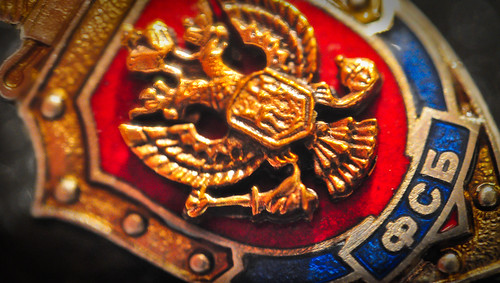Re: The Rise of the Russian Empire: Russo-Armenian Relations

Russia's first Borey-class strategic nuclear submarine will start sea trials by the end of 2008, a defense industry source said on Thursday. The fourth-generation Yury Dolgoruky was built at the Sevmash plant in northern Russia and was taken out of dry dock in April 2007. It will be equipped with Bulava ballistic missiles upgraded from Topol-M (SS-27) missiles. "The successful testing of the submarine's nuclear reactor, conducted on December 16 by Sevmash and Northern Fleet specialists, enable us to say confidently that Yury Dolgoruky will start sea trials by yearend," the source said. The submarine is 170 meters (580 feet) long, has a hull diameter of 13 meters (42 feet), a crew of 107, including 55 officers, a maximum depth of 450 meters (about 1,500 feet) and a submerged speed of about 29 knots. It can carry up to 16 ballistic missiles. Two other Borey-class nuclear submarines, the Alexander Nevsky and the Vladimir Monomakh, are currently under construction at the Sevmash shipyard and are expected to be completed in 2009 and 2011. Russia's Navy commander, Adm. Vladimir Vysotsky, said in July that the construction of new-generation nuclear-powered ballistic missile and attack submarines is a top priority for the Russian Navy's development. Under the Russian State Armaments Program for 2007-2015, the Navy will receive several dozen surface ships and submarines, including five Project 955 Borey-class submarines, two Project 885 Yasen nuclear-powered attack submarines, and six Project 677 Lada diesel-electric submarines.
Source: http://en.rian.ru/russia/20081218/118935708.html
Russia's Yury Dolgoruky submarine to start sea trials by year end

Russia's first Borey-class strategic nuclear submarine will start sea trials by the end of 2008, a defense industry source said on Thursday. The fourth-generation Yury Dolgoruky was built at the Sevmash plant in northern Russia and was taken out of dry dock in April 2007. It will be equipped with Bulava ballistic missiles upgraded from Topol-M (SS-27) missiles. "The successful testing of the submarine's nuclear reactor, conducted on December 16 by Sevmash and Northern Fleet specialists, enable us to say confidently that Yury Dolgoruky will start sea trials by yearend," the source said. The submarine is 170 meters (580 feet) long, has a hull diameter of 13 meters (42 feet), a crew of 107, including 55 officers, a maximum depth of 450 meters (about 1,500 feet) and a submerged speed of about 29 knots. It can carry up to 16 ballistic missiles. Two other Borey-class nuclear submarines, the Alexander Nevsky and the Vladimir Monomakh, are currently under construction at the Sevmash shipyard and are expected to be completed in 2009 and 2011. Russia's Navy commander, Adm. Vladimir Vysotsky, said in July that the construction of new-generation nuclear-powered ballistic missile and attack submarines is a top priority for the Russian Navy's development. Under the Russian State Armaments Program for 2007-2015, the Navy will receive several dozen surface ships and submarines, including five Project 955 Borey-class submarines, two Project 885 Yasen nuclear-powered attack submarines, and six Project 677 Lada diesel-electric submarines.
Source: http://en.rian.ru/russia/20081218/118935708.html












Comment